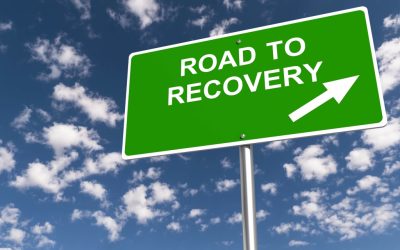In addition, elements considered integral to previous definitions of recovery that involve various aspects of psychosocial functioning and well-being are not included in this definition. Growth in these areas facilitates recovery, but they are difficult to measure in research or clinical settings. The NIAAA definition was developed to facilitate research to better understand the mechanisms (both biological and psychosocial) that underlie the process of recovery. In the DSM-5, a diagnosis of AUD requires that an individual has at least two of 11 symptoms leading to significant impairment over a 12-month period.
- Because setbacks are a natural part of life, resilience becomes a key component of recovery.
- Similarities across definitions of recovery shown in Table 1 indicate that alcohol recovery is a process that is dynamic and focuses on improvement of health and wellness.
- During this stage, people are experiencing the negative impacts of their alcohol addiction, but they have no intention of changing their behavior.
- 2 in 3 adults who ever had a mental health problem considered themselves to be recovering or in recovery.
- However, research suggests that while 12-step groups are effective, people often don’t continue their involvement at beneficial levels over the long term.
Stage 2: Contemplation
Like prior work in the field, this definition is still conceptual, and future work is needed to validate a formal operational definition of recovery that recognizes that positive change often occurs in multiple domains, that recovery may lie along continua, and that there is no singular recovery pathway. Drawing from prior definitions and informed by recent empirical work, the authors conclude that recovery is a process of behavior change characterized by improvements https://stalkeruz.com/soft/alcohol-120-dlya-windows-7.html in biopsychosocial functioning and purpose in life. As shown in Table 1, this conceptualization of recovery is similar to definitions of recovery developed by SAMHSA and the Recovery Science Research Collaborative, and it aligns with the empirical findings from Kaskutas, Neale, Kelly, and Witkiewitz, among others. These conceptualizations of recovery, including that of the authors, differ from the Betty Ford Institute Consensus Panel, which requires abstinence.
Recovery from Alcohol Use Disorder Overview
7 in 10 adults who ever had a substance use problem considered themselves to be recovering or in recovery. This CME/CE credit opportunity is jointly provided by the Postgraduate Institute for Medicine http://nesudba.net/actions/page-3444 and NIAAA. Think about things that led to or worsened this relapse and how to remove them from your life. If a trigger is unavoidable, consider what you can do differently next time you face it.
Rehabilitation Programs
- Addiction physicians and therapists in solo or group practices can also provide flexible outpatient care.
- Because dry drunks have a high risk of relapse, they are not in the termination phase.
- As habitual as a migration of birds, clients have come to me thrilled that their loved one has stopped drinking, yet report that the partnership is as brittle as tinder and inexplicably worse than before.
- This stage can be seen as training for life without drinking because there are quite a few complicated emotions to work through.
- For a female, heavy drinking is defined as more than seven drinks per week or more than three drinks per day.
I have heard clients say that at least when their loved one was drinking they knew what to expect. Either way, you feel “damned if you do, damned if you don’t;” irresponsibility, anger and resentment now seem to go with the active alcoholic as well as the “dry drunk”.I’ve been there with my own loved one and it’s not a comfortable place to be. I have listed 6 characteristics and/or dispositions of the “dry drunk” that can hit the recovering alcoholic hard in the honest light of sobriety in addition to putting added strain and pressure on the relationship. Without working on (and realizing that this part of recovery needs as much work as the physical addiction does) the emotional/psychological portion, the alcoholic may become lazy, irritable, easily annoyed or quick to anger and will defend and justify at the slightest questioning or provocation.

Medical Professionals
It may seem that relapse is the last thing that could happen to you, but the truth is they are very common for people new to recovery. Alcohol use disorder is often linked to other mental health conditions such as depression or anxiety. Talking to a qualified therapist can help you get to the root of your condition and devise a means to kick it.
Because setbacks are a natural part of life, resilience becomes a key component of recovery. As mentioned in this article, you can support recovery by offering patients AUD medication in primary care, referring to healthcare professional specialists as needed, and promoting mutual support groups. See the Core article on recovery for additional, effective strategies that can help your patients prevent or recover from a relapse to heavy drinking, including https://www.insai.ru/slovar/gepatit-alkogolnyi managing stress and negative moods, handling urges to drink, and building drink refusal skills. If you feel that you sometimes drink too much alcohol, or your drinking is causing problems, or if your family is concerned about your drinking, talk with your health care provider. Other ways to get help include talking with a mental health professional or seeking help from a support group such as Alcoholics Anonymous or a similar type of self-help group.
- However, even a mild disorder can escalate and lead to serious problems, so early treatment is important.
- Include the names of everyone on your medical and support teams and how to contact them.
- As mentioned in this article, you can support recovery by offering patients AUD medication in primary care, referring to healthcare professional specialists as needed, and promoting mutual support groups.
- People discover the extent, to which using alcohol has compromised their quality of life.
- It is hard to see the benefits of not drinking in this case, and the person may struggle with relapse unless they become able to bring about some real change.
You may also need to change your route to work or home in order to avoid any triggers, or people, places, or things that make you want to use drugs or drink again. It stands to reason that if you quit your drug of choice but continue with your same routine, hanging around the same people and places, and not making any changes in your circumstances, it will be much easier to slip back into your old behaviors and habits. Depending on the type of dependency, PAWS can last from six months to two years after you stop using drugs or alcohol. Post-acute withdrawal syndrome (PAWS) involves experiencing withdrawal symptoms that persist past the detox period.

